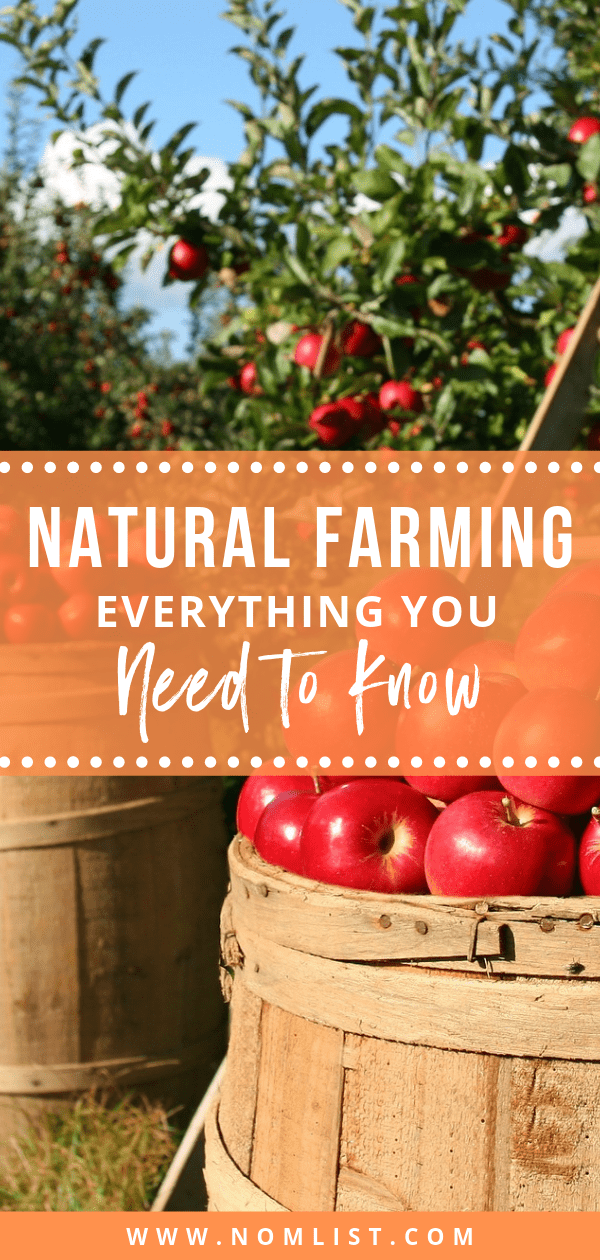

In this day and age, it's not surprise that people are searching for more sustainable ways to farm their produce. However, some believe that human intervention is actually causing detriment to the the entire farming industry. That's exactly why natural farming has been gaining so much traction.
The History of Natural Farming
It's essentially farming without doing anything at all. Sounds strange, right? Well, the theory was popularized by Masanobu Fukuoka in his book The One Straw Revolution where he discusses the art of the "natural way of farming" or "do-nothing farming". The idea is not to hold back on the effort of maintaining your crops, but leaving out human intervention and manufacturing.
This style of farming relies heavily on animal and biodiversity for crops to thrive. By allowing nature to take it's course, it allows each ecosystem involved in farming to thrive along with the crops, keeping balance in nature.
Ultimately, the goal of natural farming is the "cultivation and perfection" of human beings. It focuses on helping humans educate themselves on now nature work and affects the overall balance of life, rather than humans manipulating the growth of crops with chemicals and manufacturing.
How to Practice Natural Farming
Many people are a bit skeptical about natural farming practices. Sure, it's letting nature do its course, but sometimes it may not always go as planned. However, the key to a successful natural farm is all based on balance.
So, what exactly are you balancing you ask? It's simple. in order for any system of production to work, it needs to take less than or equal the amount resources from the earth that it replaced. Regeneration is the key, and maintaining a healthy natural balance allows natural farming to be the most holistic and sustainable approach to modern agriculture.
Here are the basic principles of natural farming:
Korean Natural Farming
When it comes to Korean natural farming, it truly embodies the biological functions of each and every plant function in order too increase production and nutritional value. This is achieved by utilizing indigenous microorganisms (IMO) such as bacteria, fungi, nematodes, and protozoa to producer naturally fertilized soils.
Because of it's widespread success, Korean natural farming practices are now exhibited in over 30 different countries by personal and commercial farmers.
Here are the main principles of Korean natural farming:
When implemented in Hawaii, crop productivity actually doubled. Also, they noticed there was a reduction of water usage by 30%.
Fertility Farming
One of the most important parts of farming is ensuring your soil is perfectly balanced for plant growth. That's why fertility farming has been progressing in the agriculture community as a innovation in sustainable farming.
In 1951, Newman Turner brought light to fertility farming, which is a similar system to the Korean natural farming.
Here are some principles of fertility farming:
Native American Natural Farming
In 2012, Native American farmers sold close to $67 million worth of agriculture products which is responsible for about 2 percent of the $3.7 billion agricultural products sold in Arizona that year (Arizona Farm Bureau).
Since Native American farming practices are so lucrative, it's no wonder that variations of their natural farming practices are implemented globally.
Also, the Hopi tribe in Arizona has a deep rooted traditional heritage through farming, which as been passed down from generation to generation for centuries. Thy predominantly use dryland farming techniques, which requires seeds to be planted deeper than crops for commercial use. Also, it relies heavily of rainfall for water and no other water sources.
Rishi Kheti
In India, people refer to natural farming as Rishi Kheti. This is a practice which includes ancient Vedic principles of farming.
Here are the principles of Rishi Kheti:
Because the cow is such a sacred animal in India, the farmers utilize cow products like buttermilk, milk, curd, and waste urine to help promote growth within the crops.
To this day, there are still farmers who practice Rishi Kheti in rural areas such as Madhya Pradesh, Punjab, Maharashtra and Andhra Pradesh, and Tamil Nadu.
Zero Budget Farming
Zero budget farming is a practice originating in South India that believes in natural growth of crops. The reason why it's called "Zero Budget' is because it has a net zero cost of product of all crops. Also, this is extremely sustainable since the crops health and productivity do not require on a steady income of money for them to survive.
In order to achieve productivity without money, these farming practices rely on the use of cow dung and cow urine as seed treatments and other inoculations. Plus, these crops help retain soil fertility and are resistant to climate change.
Currently, there are over 523,000 farmers practicing Zero Budget Farming in 3015 villages with over 504,000 acres of land (http://apzbnf.in/).
Does Natural Farming Work?
Even though natural farming has been historically prevalent in our systems of agriculture across the globe, many people still argue the efficacy of these practices. Because of the technological advancements in the way we tend our crops, many turn a blind eye to the long-term benefits of these farming practices for the more affordable and quicker fix of machinery.
However, sustainability is an eminent factor that we need to acknowledge. Sadly, the agriculture industry alone is responsible for roughly 25% of Greenhouse Gas Emissions. But, by implementing natural farming, we could ultimately decrease our emissions and start creating a symbiotic relationship with nature again.
By using only what we need and giving back to nature exactly what we used, we can help create a healthy balance for our crops and for our ecosystems. But, in order to do this properly, we need to be a part of nature again. Also, we need to leave our screens and understand how the world right in our backyard works.
Through the natural way of farming, we are not only creating sustainable foods but also sustainable relationships with nature. That's why it is absolutely integral and works. All it requires is for humankind to work with it.


